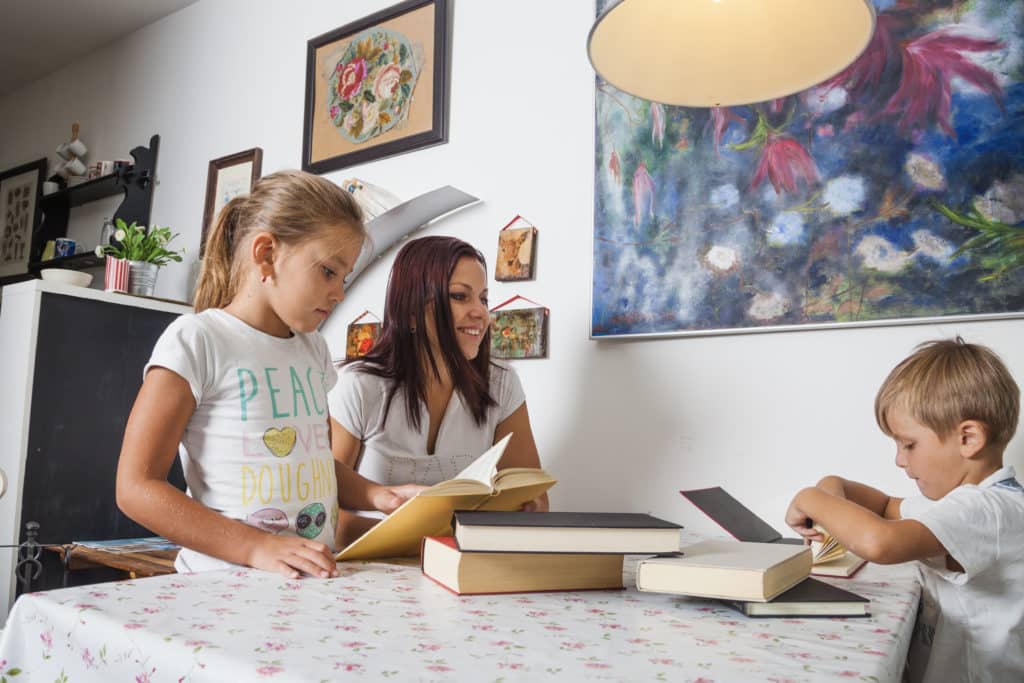If you’re anxious about how two months away from the classroom due to COVID-19 will affect your child’s education … don’t be.
That’s the advice from a leading researcher into education who found that students who are faced with lengthy periods away from school show no effects, and in some cases actually do better.
Laureate Professor John Hattie, who was the adviser for the New Zealand Qualifications Authority that oversaw school examinations after the devastating Christchurch earthquakes of 2011, found that while schools were closed for weeks and most students did not have the opportunity for online learning, results did not suffer and high school students did not drop out.
The author of the internationally acclaimed book Visible Learning – believed to be the world’s largest evidence-based study into the factors which improve student learning – said the difference was teachers focused on “what has to be learned” instead of getting through a lot of curriculum.
He said the majority of students actually did better following the break from traditional learning.
“the majority of students actually did better following the break from traditional learning.”
“Following the earthquake there was a rush to online learning with a cry for special dispensations for upper high school examinations,” he said.

“As advisor to the Qualifications Authority that oversaw these exams, I argued we should not give special dispensation. I based this on teacher strike research, which showed no effects at this upper school level, and with positive effects in some cases.
“Sure enough, the performance of Christchurch students went up, and as schools resumed, the scores settled back down. Why? Because teachers tailored learning more to what students could NOT do, whereas often school is about what teachers think students need, even if students can already do the tasks.
“The most likely implication of school closures relates to equity. Students who come from well-resourced families will fare much better than those from lower resourced families.
“Teachers can’t categorise, they have to be good at diagnosing which students are struggling and then deal with it.
“It’s so important they don’t assume, they need to take a really good look at all students and determine which ones need extra help.
“Most students will do better following the closures, it’s now up to the teachers to identify those who won’t.”
Professor Hattie said both Australia and the US have some of the longest school days and school years across all of the OECD countries, meaning we have some room to give.
And while we spend more time in the classroom – that does not reflect on better results.
“If we take out one term/semester of 10 weeks, [Australia and the US] still have more in-school time compared to Finland, Estonia, Korea and Sweden, which all outscore Australia and the USA on PISA,” he said.

“We have a chance to truly make a difference to the quality, the teaching, the learning and the outcomes of schooling by using this unexpected ‘experiment’ to bring a ‘new normal’ in teaching and learning.
“Research on previous outages to schooling (hurricanes, earthquakes, strikes, wars) revealed that we forget the good things and hustle face back to the comfort of the old.
“Now that schools are heading back we have a unique opportunity to really look at what worked with students learning away from the classroom and implementing those in how we teach.
“We can discuss the negatives, and there will be some, but we should embrace the positives.
“Most students would have come out of this doing better than they were before.
“You have to be amazed what teachers have done to turn the whole system around so that kids can work at home doing various things.
“But my message is ‘let’s not get stressed about it’.
“But my message is ‘let’s not get stressed about it.”
“We have so much to learn from the recent “pandemic teaching and learning” experience. The strongest message is to learn from what went well during COVID, and ensure we do NOT return to the old ‘grammar of schooling’.
“We should be collating and sharing all the excellent examples of learning away from school, and asking how we could introduce them into the regular school day – and give up some of the old ‘grammar of schooling’ and move to the ‘new normal of learning’. “
John Hattie is Laureate Professor at the Melbourne Graduate School of Education, University of Melbourne, and also Chair of the Australian Institute for Teachers and School Leaders.
